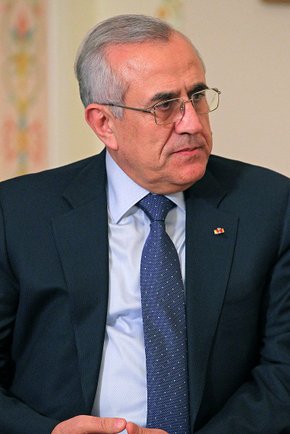النظامُ يَخرجُ من المجتمعِ إلى الدستورِ وليس العكس. وإحدى مشاكلِ لبنان الدستوريّةِ هي أنّنا وَضعْنا دستورًا ثابتًا لنظامٍ قابلِ التأويل ولمجتمعٍ قيدَ التكوين. وجاء تَطوّرُ المجتمعِ صادِمًا مضمونَ الدستورِ، فانفَجر النظامُ اللبنانيُّ. ولأنّنا لم نُعالِجِ التباساتِ النظامِ انفَجَر لبنانُ أيضًا. رغم ذلك، لا يزال البعضُ يتعالى على الاعترافِ بالأمراضِ التاريخيّة، ويَتجاهَلُ الوقائعَ الجديدة. نَعيشُ في رفضِ لبنانَ القائمِ والخوفِ من لبنانَ القادم. مئةُ سنةٍ كافيةٌ لاختبارِ مكامنِ النجاحِ والفشل، والثقةِ والولاء. ربّما بَكَّرْنا في اللقاءِ وتَأخَّرنا في الطلاق. هذه هي الإشكاليّةُ التي تُعاني منها دولةُ لبنان فتَدفعُ ثمنَ الشَهواتِ القاتلة.
البعضُ يعيش كأنَّ دستورَيِّ “الطائف” وما قَبلَه هما الأمثل، في حين أنَّ دستورَ 1943، الذي ارتاحَ إليه المسيحّون، أزْعجَ السُنّة، ودستورَ “الطائف” الذي أغْبَطَ السُنّةَ أغاظَ الشيعةَ وغيرهَم، والاثْنين أحْنَقا الدروز، والنظامَ كَكُلٍّ أثارَ الأجيالَ الجديدةَ التائقةَ إلى العَلمَنة. هكذا، أصبَحنا شعبًا من دونِ دستورٍ ودستورًا من دون شعب. والنتيجةُ أنّنا نعيشُ اليومَ خارجَ الدستورِ والنظام، وانْقطَعت العلاقةُ بين الدولةِ والمجتمع، حتى مع الفئاتِ التي تؤيّدُ الدستورَ والنظامَ والدولة. الـمُعتَدون على الدولةِ ظلّوا أعداءَها، وحُماتُها صُدِموا بخيانتِها ذاتَها وإيّاهم. نحن اللبنانيّين “نَنتخبُ” رؤساءَ جمهوريّةٍ وحكوماتٍ ومجلسِ نوّابٍ ونوابًا ورؤساءَ بلديّاتٍ ومختارين، ولا نَنتخِبُ مرّةً “أيَّ لبنانَ نريد”.
:quality(70)/cloudfront-eu-central-1.images.arcpublishing.com/thenational/EV4ABLBCOZQCY5TOFYI7YUOP5E.jpg)


![People queue to refill domestic gas cylinders at a petrol station in the Ouzai area of the capital Beirut [Nabil Mounzer/EPA-EFE]](https://www.aljazeera.com/wp-content/uploads/2021/09/h_57129647.jpg?resize=770%2C513)



